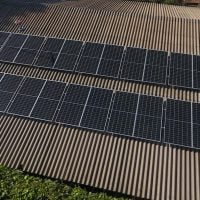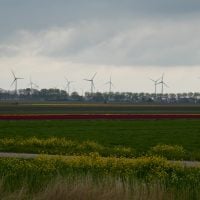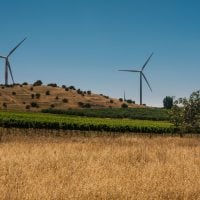Energy Transition Support Funds are financial resources designed to assist organizations, particularly non-governmental organizations (NGOs), in facilitating the shift from fossil fuel-based energy systems to more sustainable and renewable energy sources. These funds are crucial in addressing the pressing challenges posed by climate change, energy insecurity, and environmental degradation. By providing financial backing, these funds empower NGOs to implement innovative projects that promote clean energy solutions, enhance energy efficiency, and foster community resilience.
The significance of these funds cannot be overstated. They not only provide the necessary capital for projects but also signal a commitment from governments and international bodies to support the transition towards a greener economy. Understanding the nuances of these funds is essential for NGOs aiming to leverage them effectively.
This includes grasping the various types of funding available, such as grants, loans, and technical assistance, as well as the specific goals and priorities that these funds aim to address. By aligning their projects with the objectives of these funds, NGOs can enhance their chances of securing financial support. Are You Working on Solar Innovation or Clean Energy Access? Join us to receive updates.
Identifying Eligibility Criteria for NGOs
Before embarking on the journey to secure funding from Energy Transition Support Funds, NGOs must first identify the eligibility criteria set forth by the funding bodies. These criteria can vary significantly depending on the source of funding, whether it be governmental agencies, international organizations, or private foundations. Common eligibility requirements often include factors such as organizational structure, geographic focus, and project alignment with specific energy transition goals.
For instance, some funds may prioritize projects that target underserved communities or regions heavily reliant on fossil fuels. Others may require NGOs to demonstrate a certain level of experience in managing similar projects or partnerships with local stakeholders. It is crucial for NGOs to conduct thorough research on these criteria to ensure they meet all necessary requirements before applying.
This not only saves time but also increases the likelihood of a successful application. Additionally, understanding these criteria can help NGOs tailor their proposals to better align with the funders’ expectations.
Researching Available Funding Opportunities
Once eligibility criteria are established, the next step for NGOs is to research available funding opportunities. This process involves identifying various sources of funding that align with their mission and project goals. A comprehensive approach includes exploring government grants, international development funds, philanthropic foundations, and corporate social responsibility initiatives.
Each of these sources may have different application processes, deadlines, and funding amounts. Utilizing online databases and platforms dedicated to funding opportunities can significantly streamline this research process. Websites such as Grants.gov or the European Commission’s funding portal provide extensive listings of available grants and their specific requirements.
Additionally, networking with other NGOs and attending relevant conferences can uncover lesser-known funding opportunities. Engaging with local communities and stakeholders can also reveal potential partnerships that may lead to joint funding applications. By diversifying their search for funding sources, NGOs can increase their chances of finding suitable financial support for their energy transition projects.
Developing a Strong Project Proposal
A well-crafted project proposal is essential for securing funding from Energy Transition Support Funds. This document serves as a roadmap for the proposed project and should clearly articulate its objectives, methodology, expected outcomes, and budget. To create a compelling proposal, NGOs must first define the problem they aim to address and demonstrate how their project aligns with the funders’ priorities.
In addition to outlining the project’s goals, it is important to include a detailed implementation plan that highlights key activities, timelines, and responsible parties. Providing evidence of community engagement and support can also strengthen a proposal, as funders often look for projects that have local buy-in. Furthermore, incorporating data and case studies from similar successful projects can bolster credibility and showcase the potential impact of the proposed initiative.
Ultimately, a strong project proposal not only communicates the vision of the project but also instills confidence in funders regarding its feasibility and effectiveness.
Partnering with Other Organizations
Collaboration is a powerful strategy for NGOs seeking to enhance their project proposals and increase their chances of securing funding. By partnering with other organizations—whether they are local community groups, academic institutions, or private sector entities—NGOs can leverage additional expertise, resources, and networks. Collaborative projects often demonstrate a broader impact and can attract more significant funding due to their comprehensive approach.
When forming partnerships, it is essential for NGOs to identify organizations that share similar values and objectives. Establishing clear roles and responsibilities within the partnership can help ensure that all parties are aligned and working towards common goals. Additionally, showcasing these partnerships in project proposals can enhance credibility and illustrate a commitment to collaboration.
Funders are often more inclined to support initiatives that involve multiple stakeholders working together towards a shared vision for energy transition.
Demonstrating the Impact of the Project
Funders are increasingly focused on the measurable impact of projects they support. Therefore, NGOs must develop robust strategies for demonstrating the potential outcomes of their initiatives. This involves setting clear indicators for success that align with both project objectives and funder expectations.
These indicators should encompass both quantitative metrics—such as energy savings or reductions in greenhouse gas emissions—and qualitative measures like community engagement or improved quality of life. To effectively demonstrate impact, NGOs should consider implementing baseline assessments before project initiation. This allows for a comparison of conditions before and after project implementation, providing concrete evidence of change.
Additionally, engaging beneficiaries in monitoring efforts can enhance accountability and provide valuable insights into project effectiveness. By proactively addressing how they will measure and report on impact, NGOs can build trust with funders and stakeholders alike.
Budgeting and Financial Planning
A comprehensive budget is a critical component of any project proposal submitted for Energy Transition Support Funds. This budget should not only outline anticipated expenses but also demonstrate financial prudence and transparency. NGOs must ensure that their budgets are realistic and aligned with project activities while also considering potential contingencies.
When developing a budget, it is essential to categorize expenses into direct costs—such as materials, labor, and travel—and indirect costs like administrative overheads. Providing detailed justifications for each line item can help funders understand how resources will be allocated effectively. Additionally, NGOs should explore opportunities for cost-sharing or in-kind contributions from partners or local communities to enhance their budget’s viability.
A well-structured budget not only reflects careful planning but also reassures funders that their investment will be managed responsibly.
Engaging with Stakeholders and Communities
Engaging stakeholders and communities throughout the project lifecycle is vital for ensuring its success and sustainability. Effective engagement fosters trust, encourages collaboration, and enhances local ownership of initiatives. NGOs should prioritize building relationships with community members, local leaders, government officials, and other relevant stakeholders from the outset.
This engagement can take many forms—community meetings, workshops, surveys, or participatory planning sessions—allowing stakeholders to voice their needs and concerns regarding energy transition efforts. By actively involving communities in decision-making processes, NGOs can tailor their projects to better meet local needs while also fostering a sense of ownership among beneficiaries. Furthermore, demonstrating strong community engagement in project proposals can significantly enhance credibility in the eyes of funders.
Addressing Environmental and Social Impacts
As NGOs embark on energy transition projects, it is crucial to consider both environmental and social impacts comprehensively. Funders increasingly expect organizations to conduct thorough assessments of potential risks associated with their initiatives—ranging from ecological consequences to social equity issues. By proactively addressing these impacts in project planning stages, NGOs can mitigate risks while enhancing project sustainability.
Conducting environmental impact assessments (EIAs) can help identify potential negative effects on local ecosystems while also highlighting opportunities for positive contributions—such as habitat restoration or biodiversity enhancement. Similarly, social impact assessments (SIAs) can reveal how projects may affect local communities economically or culturally. By integrating these assessments into project design and implementation plans, NGOs can ensure that their initiatives contribute positively to both environmental sustainability and social equity.
Monitoring and Reporting on Project Progress
Monitoring and reporting are essential components of successful project management in the context of Energy Transition Support Funds. Regularly tracking progress against established indicators allows NGOs to assess whether they are meeting their objectives while also identifying areas for improvement along the way. This iterative process not only enhances accountability but also provides valuable insights that can inform future projects.
Establishing a clear monitoring framework at the outset is crucial for effective tracking. This framework should outline data collection methods—such as surveys or interviews—and specify who will be responsible for monitoring activities. Additionally, creating a reporting schedule ensures that stakeholders remain informed about project progress and outcomes throughout its lifecycle.
Transparent reporting fosters trust among funders and communities alike while demonstrating an NGO’s commitment to accountability.
Building Capacity and Sustainability for Long-Term Impact
Finally, building capacity within both the NGO itself and the communities it serves is essential for ensuring long-term sustainability beyond initial funding periods. Capacity-building initiatives may include training programs for staff or community members focused on skills related to renewable energy technologies or project management practices. Moreover, fostering local leadership within communities can empower residents to take ownership of ongoing energy transition efforts even after external funding has ended.
Establishing mechanisms for knowledge transfer—such as mentorship programs or collaborative workshops—can further enhance sustainability by equipping communities with the tools they need to continue driving positive change independently. In conclusion, navigating Energy Transition Support Funds requires a multifaceted approach that encompasses understanding funding mechanisms, developing strong proposals, engaging stakeholders effectively, addressing impacts comprehensively, monitoring progress diligently, and building capacity for long-term success. By implementing these strategies thoughtfully, NGOs can play a pivotal role in advancing sustainable energy solutions while contributing positively to their communities and the environment at large.
For NGOs looking to secure funding for energy transition projects, understanding the broader landscape of available grants can be incredibly beneficial. One such opportunity is the Niagara Prosperity Initiative 2024, which focuses on supporting community development and poverty reduction initiatives. While this particular fund is not exclusively for energy transition, it highlights the diverse range of funding opportunities available to NGOs that can be leveraged to support various aspects of community improvement, including sustainable energy projects. By exploring different funding avenues, NGOs can better position themselves to secure the necessary resources for their energy transition goals.









































